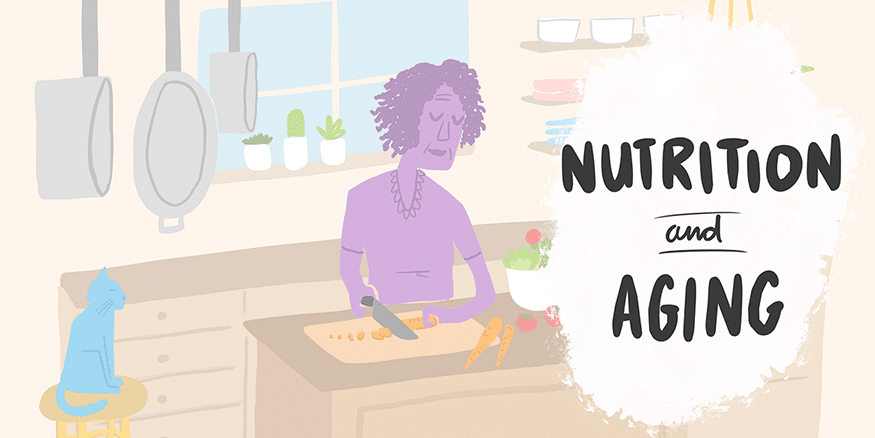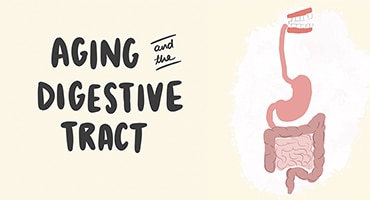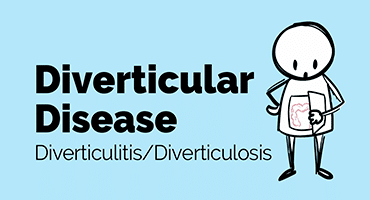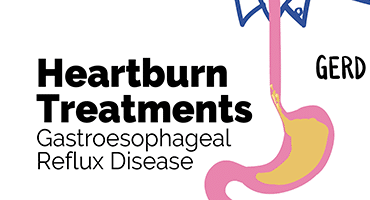
Nutrition and the Aging Gut Video
If you are reaching your later years, you might be experiencing changes to the way your gut works. It’s important that you maintain a nutrient-dense diet to prevent malnutrition, and if you need a bit of extra help getting those nutrients in, taking oral nutritional supplements can help. In this video we discuss nutrition and the aging gut.
Featuring
Anne-Marie Stelluti
Registered Dietitian
modernguthealth.com
Video Transcript
If you are reaching your later years, you might be experiencing changes to the way your gut works. As you age, your body isn’t as efficient at digesting and absorbing what you eat. You might also find that foods don’t taste the same as they used to, which can make it challenging for you to eat enough. These factors can put you at an increased risk of nutrient deficiencies. It’s important that you maintain a nutrient-dense diet to prevent malnutrition, and if you need a bit of extra help getting those nutrients in, taking oral nutritional supplements can help.
Certain digestive diseases and disorders are more common in older adults.
Trouble swallowing, known as dysphagia, is one of these. If you have dysphagia, focusing on eating foods with an easy to swallow texture can help. This includes eating softer and fluid-rich foods such as soups and smoothies, and adding nutrient dense foods, such as Greek yogurt or avocado, to your meals. This strategy can help you maintain adequate nutrient intake and hydration.
Chronic heartburn, also known as GERD, or gastroesophageal reflux disease, along with general stomach upset, known as dyspepsia, are common in all ages, but your risk increases as you age. However, there are steps you can take to reduce symptoms. If you have any questions about identifying trigger foods, adapting your diet to remove them, or making sure you maintain a balanced diet, a registered dietitian can help.
Other lifestyle changes you can make to reduce symptoms include obtaining or maintaining a healthy weight, wearing clothing that is loose around the waist, managing stress, and not eating before exercising or for about three hours before bedtime. There are also medications that help manage stomach acid.
When it comes to problems lower in the digestive tract, diarrhea and constipation are both common. These symptoms can be a result of underlying conditions, such as irritable bowel syndrome, inflammatory bowel disease, and Celiac disease, or from dietary and lifestyle factors. Dietary changes can help you manage these conditions, but it is important to note that you should always visit your physician if you experience any new symptoms, just in case there is a more severe issue that requires other treatment.
To manage diarrhea, eat foods rich in soluble fibre, such as bananas, applesauce, oatmeal, and mashed potatoes. Sticky rice, tapioca, and gelatin can also help firm up bowel movements. Stick to easy to digest proteins, such as smooth peanut butter, aged cheese, eggs, and baked chicken. Try to avoid alcohol, caffeine, extra spice, and fatty foods, as these might also increase diarrhea. If increasing the amount of soluble fibre in your diet isn’t enough, an inulin supplement, such as Benefibre®, can help. It is a prebiotic that feeds good gut bacteria, and it binds up loose stool.
If you have more than eight loose bowel movements per day, you should consider taking an oral rehydration solution, also known as an electrolyte drink. This will help your body absorb more fluid and it will also replenish essential electrolytes, such as sodium and potassium, which you might be losing. You might also require a zinc supplement if you have a lot of loose bowel movements; speak with your physician or dietitian about this.
To treat constipation, it is important to make sure you are well hydrated. Drink at least 1.5-2 litres of fluid per day to keep stools moist, which will help move things along. If you aren’t a fan of drinking plain water, try adding lemon, orange, or cucumber slices to make your own infused water. You also need to eat a high fibre diet. Aim for at least 30 grams of fibre per day to add bulk to your stool and promote regular bowel movements. Make sure to include fibre in each meal, such as oatmeal for breakfast, an apple or pear with lunch, and roasted vegetables with dinner. You can increase your fibre intake further through psyllium supplements such as Metamucil®, but make sure to drink more liquid, about an extra cup or two, whenever you take a fibre supplement.
Some fruits are natural laxatives, including prunes, prune juice, kiwi, rhubarb, and papaya. Try working these into your diet to help relieve constipation. Exercise can also help keep you regular, so make sure to get those steps in or try out a yoga routine. Taking a walk after meals can be especially helpful.
One of the most common conditions in older individuals is diverticular disease. It’s important to eat a low fibre diet during a flare of diverticulitis to let the bowel rest, but you should eat plenty of fibre when you are feeling well to prevent more flares. Being physically active and maintaining a healthy bodyweight can also help when you have diverticulosis.
As you become older, you might need to adjust your dietary habits to keep your gut functioning well. Make sure you get enough vitamin D, which might mean taking a supplement.
Eating well as you age, by consuming a high-fibre diet with plenty of fruits and veggies, whole grains, legumes, nuts, and seeds, can go a long way toward keeping everything running smoothly.



